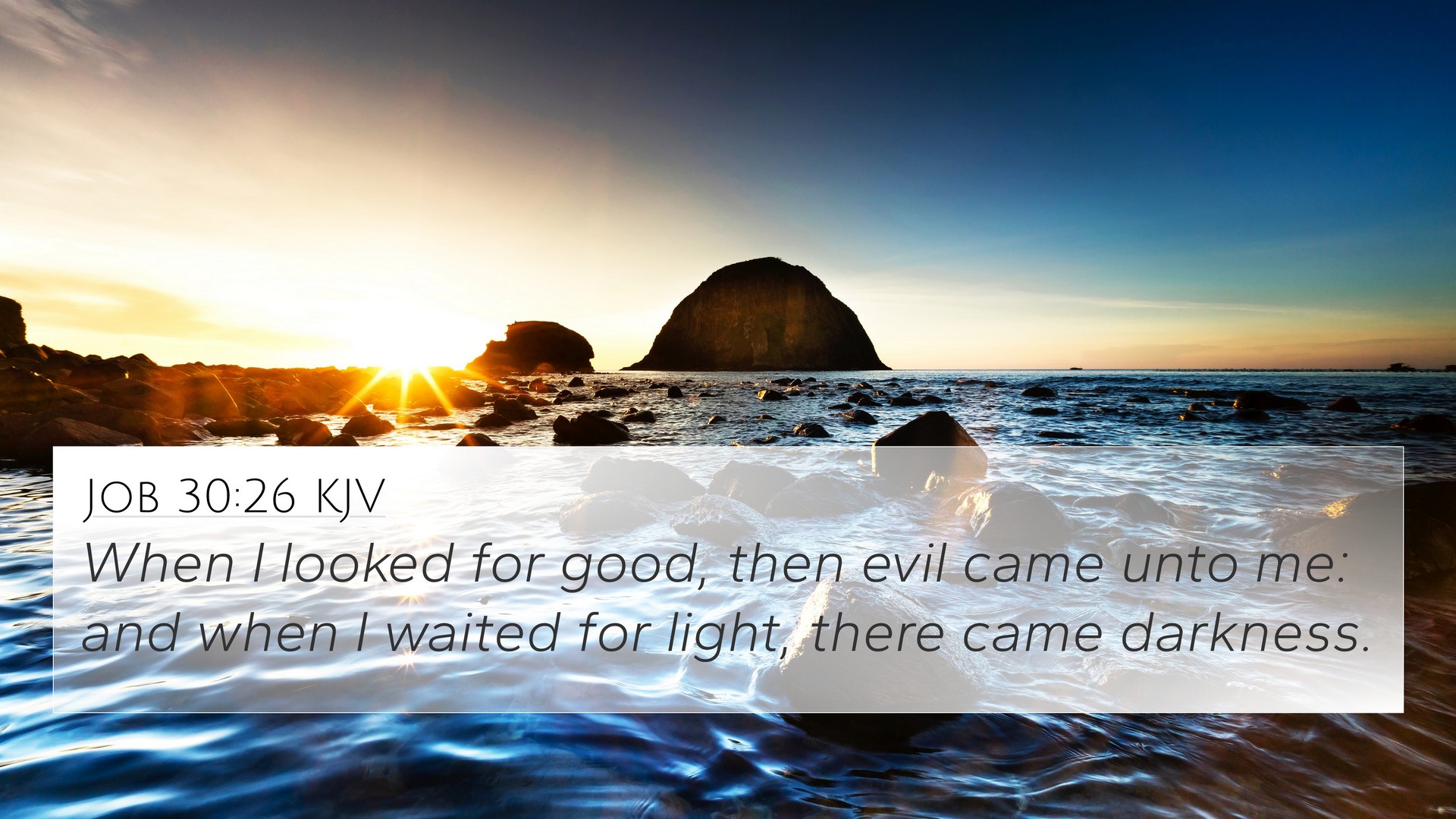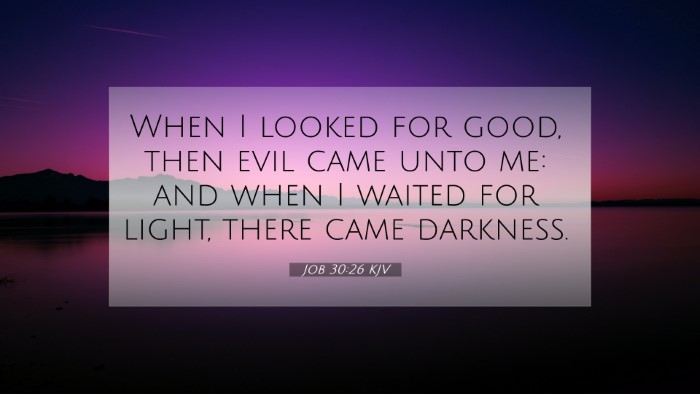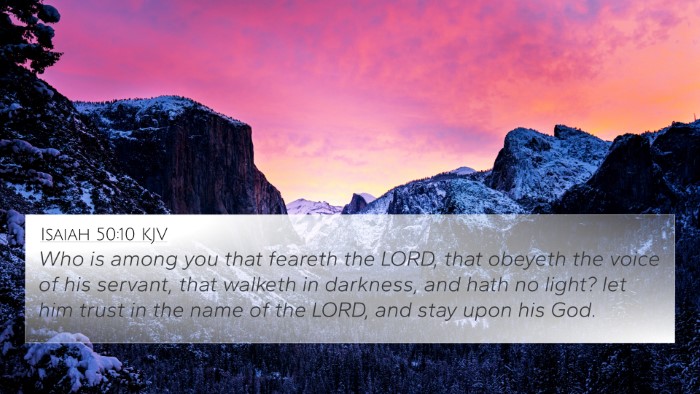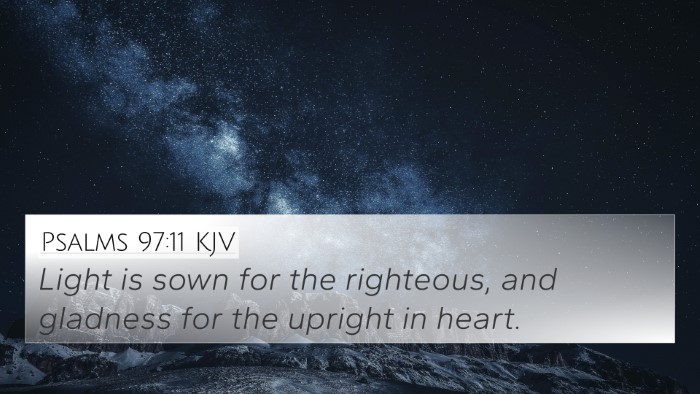Understanding Job 30:26
Job 30:26 states: "But when I hoped for good, evil came; and when I waited for light, there came darkness." This verse captures the deep despair and feeling of betrayal that Job experienced as he navigated his suffering. To delve deeper into its meaning, we can explore various insights from public domain commentaries.
Summary of Insights
- Matthew Henry's Commentary:
Matthew Henry reflects on the contrast between Job's hopeful anticipation and the harsh reality he faced. The hope for good signifies Job's trust in God's justice and mercy, while the evil and darkness represent the trials and afflictions he endured, suggesting that in life, our expectations of divine mercy may sometimes be met with profound suffering.
- Albert Barnes' Notes:
Albert Barnes emphasizes that the verse illustrates a universal truth about human suffering. The expectation of relief can often lead to deeper pain when the anticipated goodness does not manifest, highlighting the spiritual struggle of maintaining faith in difficult times. Barnes links this to broader biblical themes of testing and perseverance.
- Adam Clarke's Commentary:
Adam Clarke underscores the concept of hope versus reality, explaining how Job experienced a profound sense of disillusionment. Clarke's analysis points to the emotional turmoil faced by those experiencing suffering, and he notes that the darkness Job describes can be seen as both a metaphor for his spiritual state and the actual calamities he was undergoing.
Cross-References for Job 30:26
This verse connects with several other biblical texts, enhancing our understanding of its themes:
- Psalms 30:5: "For his anger lasts only a moment, but his favor lasts a lifetime; weeping may stay for the night, but joy comes in the morning." This verse reflects a theme of hope amidst sorrow.
- Lamentations 3:25-26: "The LORD is good to those whose hope is in him, to the one who seeks him; it is good to wait quietly for the salvation of the LORD." A reminder of the goodness of God in distress.
- Psalms 119:71: "It was good for me to be afflicted so that I might learn your decrees." Highlights the learning that arises from suffering.
- Isaiah 50:10: "Who among you fears the LORD and obeys the word of his servant? Let the one who walks in the dark, who has no light, trust in the name of the LORD and rely on their God." Encourages trust in God through darkness.
- Romans 8:28: "And we know that in all things God works for the good of those who love him, who have been called according to his purpose." Provides perspective on God's overarching plan amidst suffering.
- 2 Corinthians 12:9: "But he said to me, 'My grace is sufficient for you, for my power is made perfect in weakness.'" Shows strength in vulnerability.
- 1 Peter 5:10: "And the God of all grace, who called you to his eternal glory in Christ, after you have suffered a little while, will himself restore you and make you strong, firm and steadfast." Affirms restoration after trials.
Connections to Broader Biblical Themes
The overarching themes in Job 30:26 resonate with several key biblical messages:
- Hope vs. Despair: The struggle between hope for divine intervention and the reality of suffering is a common thread throughout scripture.
- Faithfulness in Trials: Many scriptures encourage believers to maintain faith even when circumstances appear bleak.
- The Nature of God: Understanding God's character in light of suffering is crucial, emphasizing His goodness and sovereignty.
- Learning through Affliction: Several passages tie suffering to spiritual growth and understanding.
- Community and Comfort: The importance of community in times of suffering is underscored, as believers often support one another in trials.
Tools for Further Exploration
For those looking to further investigate the connections within scripture, consider utilizing the following tools:
- Bible Concordance: A valuable resource to find specific verses and their themes.
- Bible Cross-reference Guide: Helps identify related scriptures for deeper study.
- Cross-reference Bible Study: Methods that encourage looking at multiple verses in relation to a central theme.
- Bible Reference Resources: Collections of verses categorized by themes or situations.
- Comprehensive Bible Cross-reference Materials: Detailed guides that elaborate on thematic connections.
Conclusion
In summary, Job 30:26 encapsulates the emotional struggle against despair and the search for hope amid suffering. By engaging with various scriptural cross-references and themes, one can find deeper resonance with the experiences portrayed in this verse. Applying these insights can aid in understanding the complexities of faith in the face of adversity.














